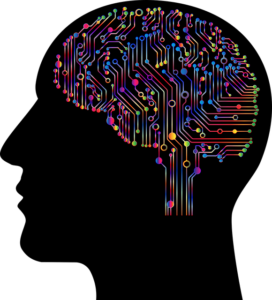Artificial Intelligence in Gastrointestinal Endoscopy: Insights from Review in Chinese Medical Journal – PRNewswire
BEIJING, Jan. 20, 2022 /PRNewswire/ — Artificial intelligence (AI) has revolutionized the field of medical devices and diagnostics, transitioning us into a world of “smart medicine.” Unlike the human brain, which is prone to bias and manual errors, AI technology can help compensate these drawbacks. Moreover, AI technologies have the potential to dramatically increase sensitivity and producti…….

BEIJING, Jan. 20, 2022 /PRNewswire/ — Artificial intelligence (AI) has revolutionized the field of medical devices and diagnostics, transitioning us into a world of “smart medicine.” Unlike the human brain, which is prone to bias and manual errors, AI technology can help compensate these drawbacks. Moreover, AI technologies have the potential to dramatically increase sensitivity and productivity of applications while substantially decreasing inter-operator variability, cost, and the time required for diagnosis.
Artificial Intelligence in Gastrointestinal Endoscopy: Insights from Review in Chinese Medical Journal
Given the increasing volume of patients with diseases of the digestive tract, applications of AI is now being explored in gastrointestinal (GI) endoscopy, a procedure used to visualize abnormalities in the GI tract. Normalization of AI-assisted GI endoscopy in routine clinical practice, however, has a long way to go.
Researchers from the Arnault Tzanck Institute, France, thus sought to bridge this gap by reviewing the procedures and myriad applications of AI in GI endoscopy. “Just like our brains do, AI models can logically analyze data, identify patterns, draw conclusions, and make decisions. Our main objective is to familiarize every GI endoscopist with this concept as it can transform the way we perform endoscopy in the very near future.”, says, Dr. Ahmad El Hajjar, lead author of the review article published on 5 February 2020 in Chinese Medical Journal.
The researchers present several studies assessing the advantages and challenges of using AI algorithms in GI endoscopy, namely computer-assisted lesion detection and computer-assisted diagnosis for optical biopsy and lesion characterization. These algorithms can be tailored for the region under investigation and are programmed to learn and improvise from reference data sets.
The review focuses on the uses of AI-driven GI endoscopy for the diagnosis and treatment of conditions like cancers across all parts of the GI tract including the esophagus, stomach, small bowel, and colon. As cancers of these regions are highly aggressive and often diagnosed at an advanced stage, AI-guided GI endoscopy can aid their early detection for timely treatment. Moreover, endoscopic procedures can also help avoid the need for multiple invasive biopsies.
AI-guided endoscopy can detect precancerous lesions and help in determining the stage and extent of invasion in esophageal and gastric cancers. For colorectal cancers, the technique is useful for early polyp detection and characterization that helps in accurately timing surgeries. Another advancement that the researchers highlight is wireless video capsule endoscopy that can be effectively used in exploratory examinations. A video explaining the key findings of the article is available on YouTube.
Dr. Hajjar concludes by saying, “The future of GI endoscopy will face a dramatic change in the upcoming years with the introduction of AI. A transition timeframe is needed for endoscopists to feel comfort and confidence to rely on AI in their practice.”
Reference
Titles of original papers: Artificial intelligence in gastrointestinal endoscopy: general overview
Journal: Chinese Medical Journal
DOI: https://doi.org/10.1097/CM9.0000000000000623
Media Contact:
Peifang Wei
86-10-51322170
[email protected]
SOURCE Chinese Medical Journal







